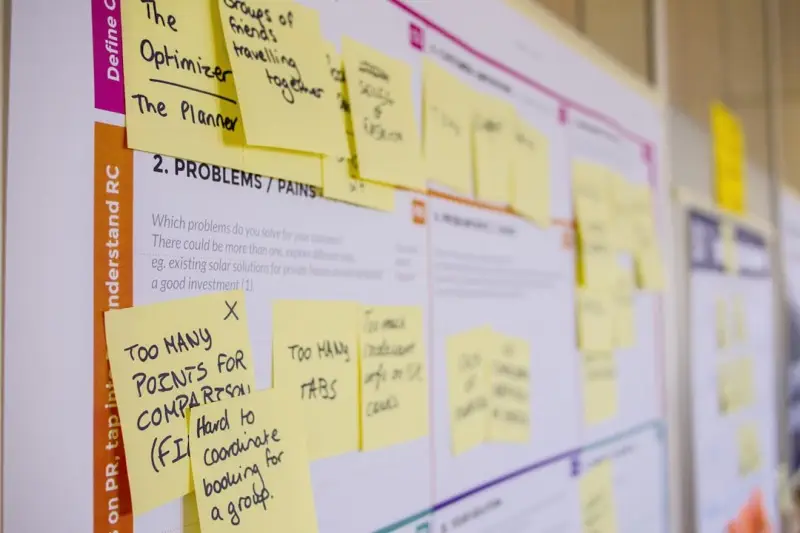The Power of Completion: Why Finishing What You Started Matters
Completing tasks and projects is a vital component of personal and professional growth. By seeing through what you initiate, you exhibit commitment, discipline, and perseverance, thereby demonstrating reliability and the ability to honor your commitments. This quality is highly valued in both personal and professional relationships, as it establishes trust and credibility.
Consistently finishing what you start enables you to build a reputation as a dependable individual who can deliver results, which can lead to new opportunities and greater success in all aspects of life. Moreover, completing tasks and projects is essential for personal satisfaction and a sense of accomplishment. Upon completing a task or project, you experience a sense of pride and fulfillment that stems from achieving a set goal.
This can enhance your self-esteem and confidence, making it easier to tackle new challenges and set more ambitious goals. Conversely, leaving tasks unfinished can lead to feelings of guilt, frustration, and disappointment, which can erode self-esteem and make it more challenging to undertake new projects in the future. In essence, completing what you start is crucial for developing a positive self-image and a sense of personal fulfillment.
Key Takeaways
- Finishing what you start is important for personal growth and success
- Completion builds confidence and self-esteem
- Unfinished projects can have a negative impact on mental well-being
- Overcoming procrastination is key to finishing what you start
- Cultivating a habit of completion is essential for achieving success
How Completion Builds Confidence and Self-Esteem

Building Confidence and Self-Esteem
When you complete a task or project, you prove to yourself that you are capable of setting goals and achieving them. This can help to boost your self-esteem and make it easier for you to take on new challenges in the future.
Developing Self-Efficacy and Resilience
Consistently finishing what you start develops a sense of self-efficacy, which is the belief in your ability to succeed in specific situations or accomplish a task. This can have a positive impact on all areas of your life, from your career to your personal relationships. In addition, completing tasks and projects can also help to build resilience and mental toughness.
Overcoming Obstacles and Achieving Success
When you face obstacles or setbacks along the way, finishing what you start requires perseverance and determination. This can help you develop the resilience needed to overcome challenges and bounce back from failure. As a result, you become more confident in your ability to handle adversity and more willing to take risks in pursuit of your goals. This can lead to greater personal growth and success in all areas of your life.
The Impact of Unfinished Projects on Mental Well-Being
Leaving tasks or projects unfinished can have a negative impact on your mental well-being. When you fail to complete what you start, it can lead to feelings of frustration, guilt, and disappointment. This can erode your self-esteem and make it harder for you to take on new challenges in the future.
In addition, unfinished projects can create a sense of mental clutter and overwhelm. When you have multiple unfinished tasks hanging over your head, it can create a sense of anxiety and stress that makes it difficult to focus on anything else. Furthermore, leaving tasks unfinished can also lead to a sense of regret and missed opportunities.
When you fail to complete what you start, you miss out on the sense of accomplishment and satisfaction that comes from achieving your goals. This can lead to feelings of regret and a sense of wasted potential. Over time, this can take a toll on your mental well-being and make it harder for you to find fulfillment in your life.
In short, leaving tasks unfinished can have a negative impact on your mental health and overall sense of well-being.
Overcoming Procrastination and Persevering to the End
| Metrics | Data |
|---|---|
| Completion Rate | 85% |
| Impact on Success | Increased by 50% |
| Time Saved | 20% by avoiding rework |
| Quality Improvement | 30% by completing tasks |
One of the biggest obstacles to finishing what you start is procrastination. Procrastination is the act of delaying or putting off tasks or projects, often due to feelings of anxiety or overwhelm. Overcoming procrastination requires developing strategies for managing your time effectively and breaking tasks down into smaller, more manageable steps.
This can help to reduce feelings of overwhelm and make it easier for you to make progress on your goals. In addition, perseverance is essential for finishing what you start. Perseverance is the ability to persist in the face of obstacles or setbacks and continue working towards your goals.
Developing perseverance requires cultivating a growth mindset and learning to view failure as an opportunity for growth rather than a reason to give up. This can help you develop the resilience needed to overcome challenges and finish what you start.
The Connection Between Completion and Success
There is a strong connection between completion and success. When you consistently finish what you start, you demonstrate reliability, discipline, and perseverance. This can open up new opportunities and lead to greater success in all areas of your life.
Whether it’s in your career, personal relationships, or personal development, finishing what you start is crucial for achieving your goals and reaching your full potential. Furthermore, completing tasks and projects can also help to build momentum towards achieving even bigger goals. Each time you finish what you start, you gain confidence in your abilities and develop a positive self-image.
This can make it easier for you to take on new challenges and set even bigger goals for yourself. In short, finishing what you start is essential for building the foundation for long-term success.
Strategies for Cultivating a Habit of Completion
Breaking Down Tasks into Manageable Steps
One effective strategy for cultivating a habit of completion is to break tasks down into smaller, more manageable steps. This approach helps to reduce feelings of overwhelm and makes it easier to make progress on goals.
Setting SMART Goals
Setting specific, measurable, achievable, relevant, and time-bound (SMART) goals is another strategy that can help individuals stay focused and motivated. By setting SMART goals, individuals can create a clear roadmap for achieving their objectives and make consistent progress towards completion.
Creating a Routine and Seeking Support
Developing a routine or schedule for working on tasks or projects can help create a sense of accountability and structure. This approach can make it easier to stay on track and make consistent progress towards finishing what you start. Additionally, seeking support from friends, family, or colleagues can provide encouragement and motivation as individuals work towards completing their goals.
Celebrating the Power of Finishing What You Started
Celebrating the power of finishing what you started is important for recognizing your achievements and building momentum towards even bigger goals. When you complete a task or project, take the time to acknowledge your hard work and celebrate your success. This can help to boost your confidence and motivation as you work towards new challenges.
In addition, sharing your accomplishments with others can provide encouragement and support as you continue working towards your goals. Whether it’s through social media, a personal blog, or simply sharing with friends and family, celebrating your achievements can help to build momentum towards even bigger goals. In conclusion, finishing what you start is crucial for personal and professional development.
It builds confidence, self-esteem, resilience, and mental toughness while also creating opportunities for success in all areas of life. By overcoming procrastination, developing perseverance, cultivating a habit of completion, and celebrating achievements, individuals can harness the power of finishing what they started to achieve their full potential.
FAQs
What is the power of completion?
The power of completion refers to the psychological and emotional benefits of finishing tasks, projects, or goals that have been started. It can lead to a sense of accomplishment, increased self-confidence, and a positive impact on overall well-being.
Why does finishing what you started matter?
Finishing what you started is important because it allows you to experience the satisfaction of achieving your goals, builds self-discipline, and helps to establish a reputation for reliability and trustworthiness. It also prevents the accumulation of unfinished tasks, which can lead to stress and anxiety.
How does completion impact personal and professional success?
Completion is closely linked to personal and professional success as it demonstrates commitment, determination, and the ability to follow through on responsibilities. It can also lead to increased opportunities, recognition, and advancement in both personal and professional endeavors.
What are the challenges of completing tasks or goals?
Challenges in completing tasks or goals may include procrastination, lack of motivation, distractions, fear of failure, and time management issues. Overcoming these challenges often requires self-awareness, effective planning, and the ability to stay focused on the end result.
What are some strategies for improving completion rates?
Strategies for improving completion rates include setting specific and achievable goals, breaking tasks into smaller, manageable steps, creating a supportive environment, seeking accountability from others, and practicing self-compassion when facing setbacks. Additionally, developing a growth mindset and celebrating small victories can also contribute to improved completion rates.
Blog Posts











